Where Does North Korea Get Its Money
How North Korea makes money revealed
The money flowing into North Korea
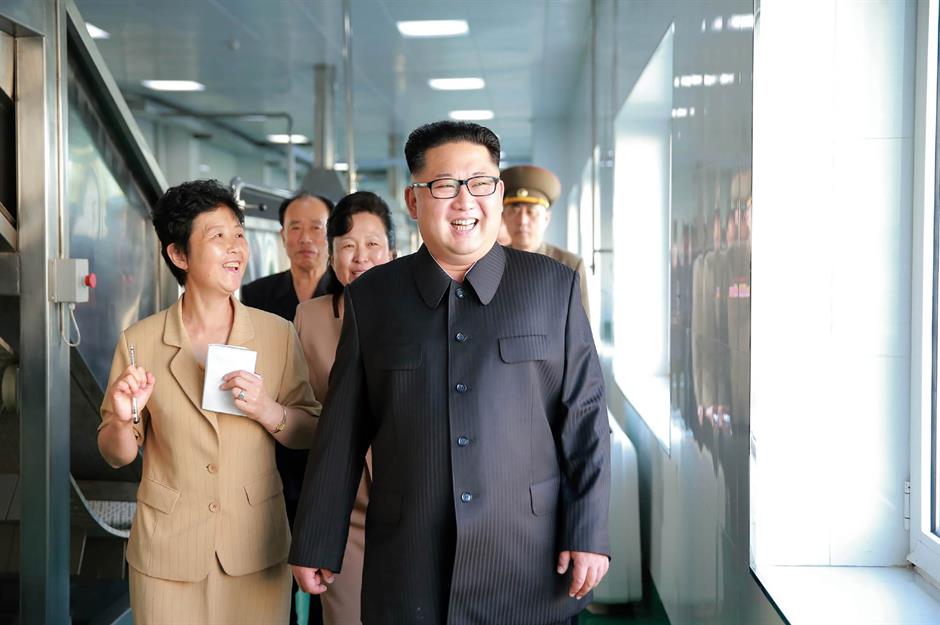
Largely cut off from the rest of the world, North Korea's trade with foreign territories has officially been severed as a result of global sanctions against the nation. Despite this, the reclusive country's leader Kim Jong-un and its elite still manage to enjoy lives full of luxuries, many of them originating from abroad. So where is all the money coming from? As a North Korean defector opens up to the BBC, read on as we look at the likely sources of cash flowing into the so-called Hermit Kingdom. All dollar values in US dollars.
GDP grows despite sanctions
.jpg)
Shota Tokuda/Shutterstock
The best way to measure a country's economic success is via its gross domestic product (GDP), and while North Korea doesn't make its economic information public, data released byTrading Economics and the World Bank puts the country's GDP at $18 billion (£14.1bn) by the end of 2020, and shows that it has been growing year on year. This is only a fraction of neighbouring South Korea's GDP, which the World Bank reported as $1.6 trillion (£1.3tn) in 2020, but the fact that North Korea has seen growth suggests that the international sanctions imposed to try and damage its ballistic missile and nuclear weapons programme have had minimal impact.
Exports grow too
.jpg)
According to South Korea's central bank, North Korea's exports rose in 2016, the last year for which it has data, by 4.6% to $2.82 billion (£2.11bn). This figure does not include trade with South Korea and is largely a result of foreign sales of a variety of goods.
Exporting coal
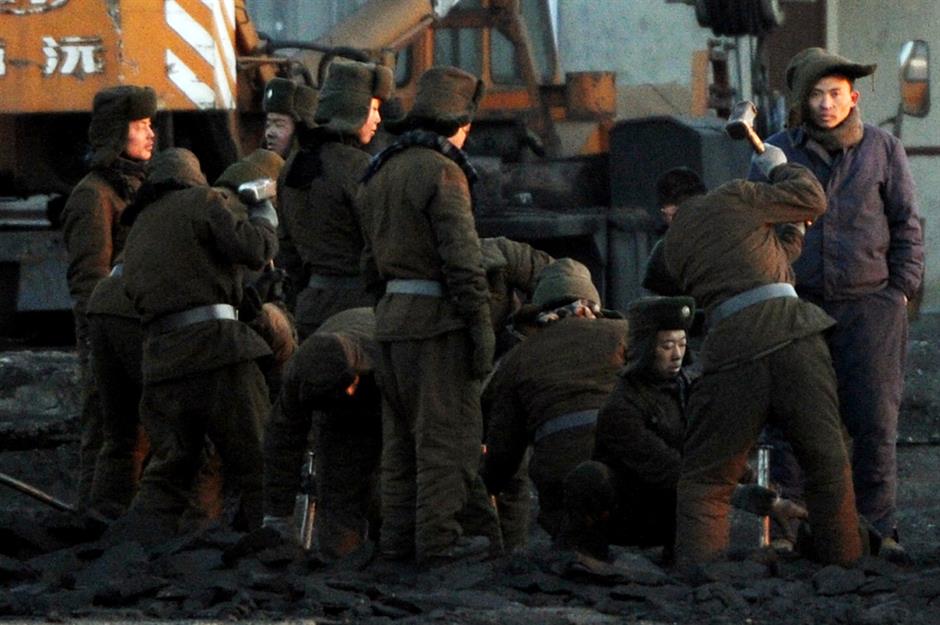
MARK RALSTON/AFP via Getty Images
Coal is North Korea's main export, bringing in more than $370 million (£305m) a year in illegal shipments. In February 2017 China announced that it would be ending all coal imports from North Korea for the year in a bid to comply with UN sanctions. However, North Korea's coal industry is still thriving, and it has been reported in a confidential United Nations report that coal has been delivered to China via ship-to-ship transfers. According to Kim Kuk-song, the North Korean defector interviewed by the BBC, he was responsible for selling rare metals and coal to raise extra funds for the country. He would sell the commodities for millions in cash and carry the money back to North Korea in a suitcase.
Exporting seafood
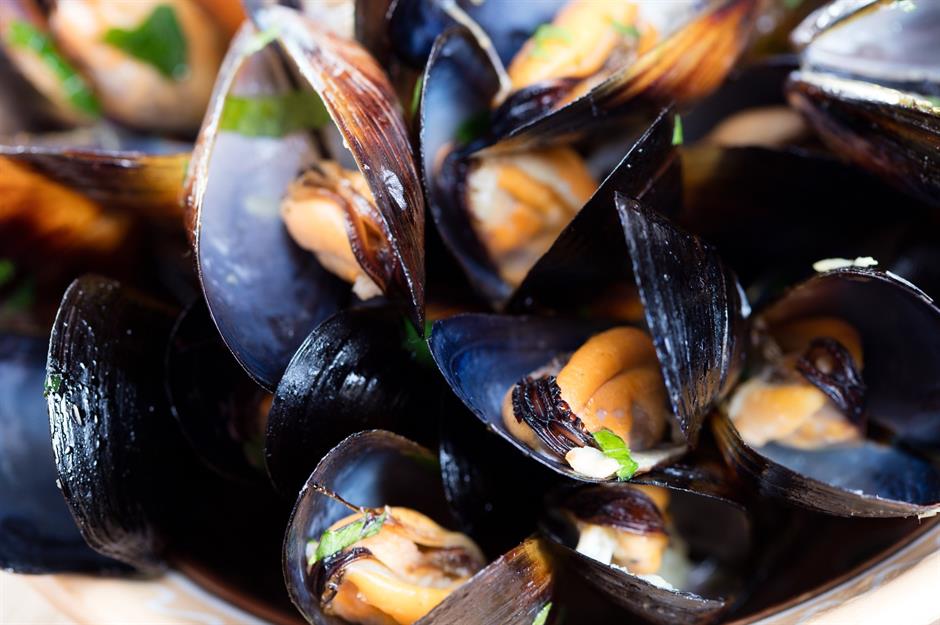
Alex Staroseltsev/Shutterstock
North Korea has become known for its pine mushrooms after Kim Jong-un gifted two tonnes of the fungus to the South Korean government in 2018, but there are also other foodstuffs that the country exports to boost its income. Molluscs, for example, brought in a respectable $137 million (£107m) in 2017, and North Korea was responsible for 1.3% of the world's mollusc exports. Processed fish was also a fairly big seller for the country, with North Korea selling $2.69 million (£2.11m) worth a year to China, according to the Massachusetts Institute of Technology's Observatory of Economic Complexity (OEC).
Exporting textiles
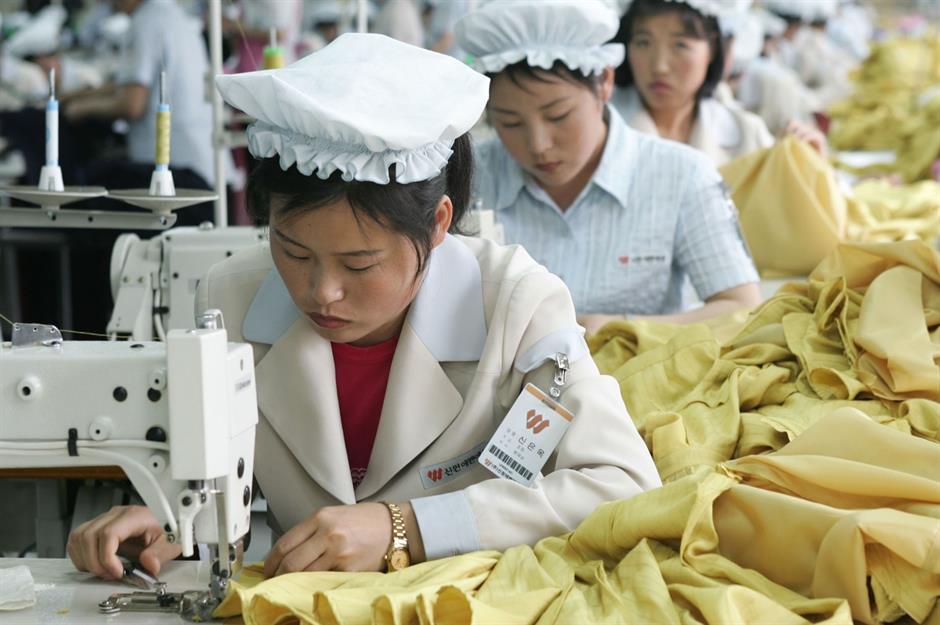
Chung Sung-Jun/Staff/Getty Images
Clothing made up a total of $584 million (£481m) of North Korea's exports in 2017, according to the OEC, including non-knit coats, suits and activewear. In recent years there has been a lot of controversy when it comes to clothing made in the socialist state because a lot of it is said to have been labelled with 'Made in China' tags before being exported.
Trading with China
.jpg)
Shota Tokuda/Shutterstock
Despite using 'Made in China' tags on its textiles exports, North Korea is thought to do most of its trade – around 80% in fact – with neighbouring China. According to the OEC, it exported $2.34 billion (£1.83bn) of goods to China in 2015. The report claimed the other main export countries for North Korea are: India, which took 3.5% of its exports; Pakistan, which took 1.5%; Burkina Faso, which took 1.2%, and Saudi Arabia, which took 0.89%.
Sharing Korean cuisine and entertainment
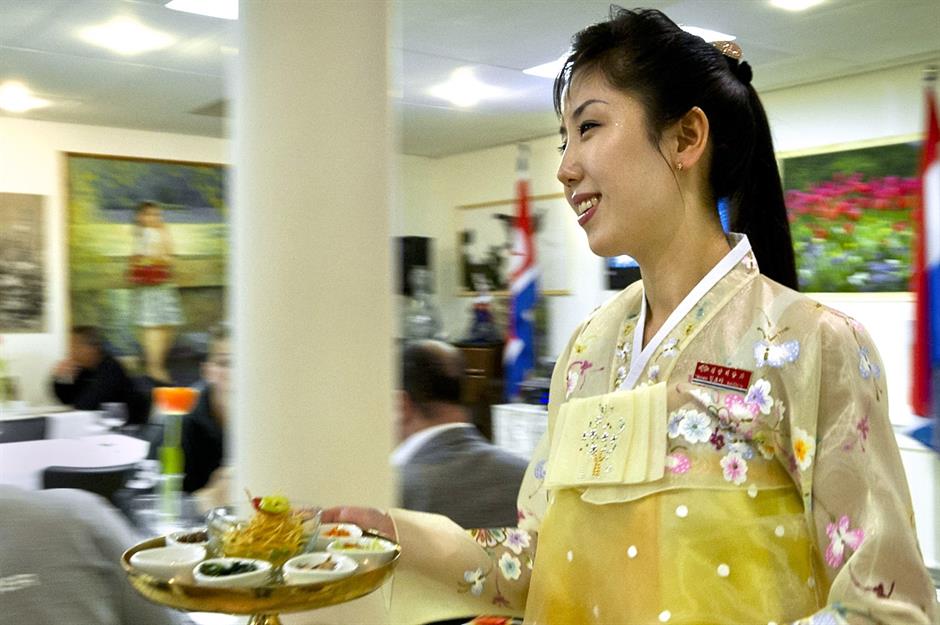
AFP/Stringer/Getty Images
North Korea isn't just sending its products abroad, but has gone one step further and opened restaurants in other countries. Keen to monetise its popular cuisine and style of entertainment, the North Korean government has opened over 100 cafes – all called Pyongyang after the country's capital – across China, as well as in Thailand, Vietnam, and even the Netherlands. The chain is known for being mysterious, and there are restrictions on photography of the performances that the waitresses put on in-between serving customers. The establishments are staffed by North Koreans and all profits feed straight back into the government. However, the coronavirus pandemic and its impact on the restaurant industry has meant that the nation has allegedly turned towards other more illegal money-making efforts...
Corruption is rife
.jpg)
JUNG YEON-JE/Getty Images
It's unsurprising that Transparency International, the global coalition against corruption, ranks North Korea as the ninth most corrupt country in the world in its 2020 Corruption Perceptions Index, only ahead of some of the world's most war-torn countries such as Syria, Sudan and Yemen. With permission being required for nearly every human move in North Korea, bribery is said to be commonplace between officials and citizens, and the money most likely lines a government pocket or two.
Dealings on the Third Floor
.jpg)
Natanael Ginting/Shutterstock
Most of that corruption is said to be government-led. According to North Korea Leadership Watch, a site that monitors the country's leadership, there are three bureaus in North Korea known as Office 35, Office 38 and Office 39, which are collectively known as the Third Floor. These offices run intelligence operations, legally and illegally source foreign currency for the party and core elites, and manage some of the party's and Kim Jong-un's family's money.
Making and trafficking drugs
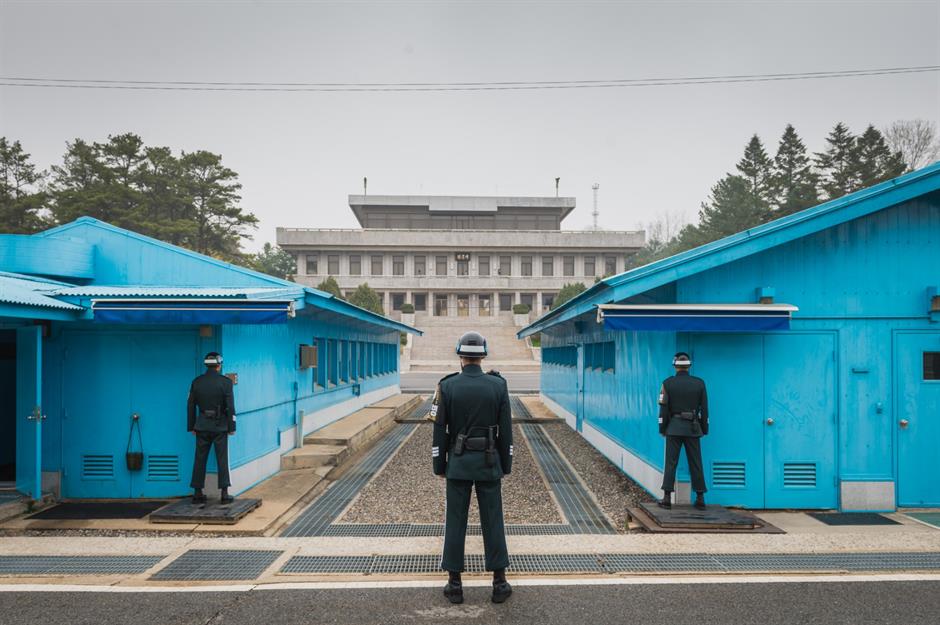
Joshua Davenport/Shutterstock
Among the alleged illegal activity of the Third Floor is the production and selling of drugs. It has long been believed that North Korea has both manufactured and trafficked narcotics for cash, and it may continue to do so as sanctions are ramped up, restricting the trading of legitimate goods. It is unlikely that the state will clean up its act anytime soon given that lenient border controls and a high demand for drugs make it an easy and lucrative means of making money. Kim Kuk-song's claims corroborate this. He told the BBC that he built an illegal drugs lab in the Workers' Party office to raise "revolutionary" funds, primarily through the production and selling of crystal meth.
Forging banknotes
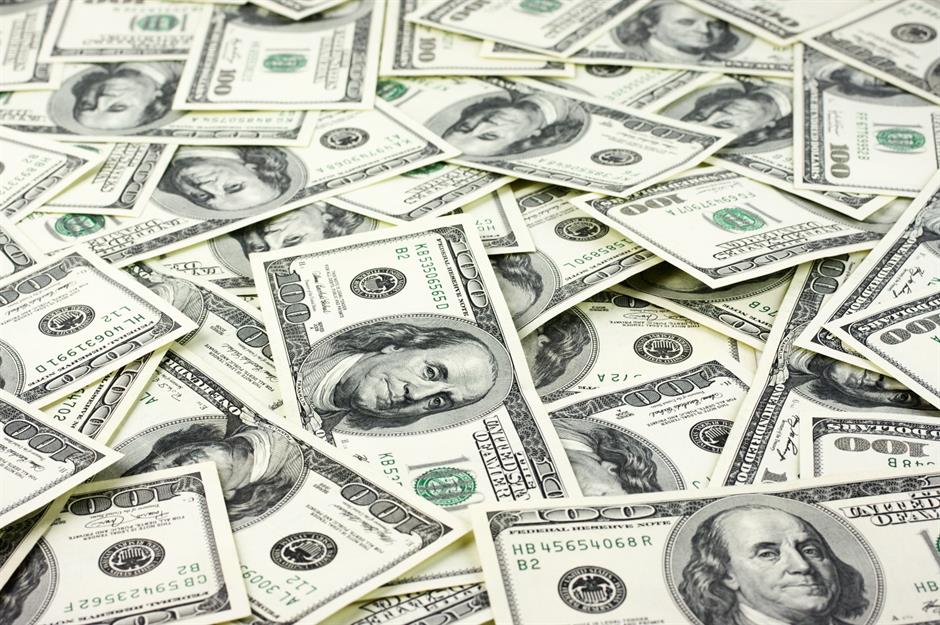
Svetlana Lukienho/Shutterstock
Not all illegal activity in North Korea is drug-related though. Some North Koreans have also become quite the experts at banknote forgery. A lot of knowledge and expensive machinery goes into replicating notes to such an exacting standard, and the fact that multiple experts have been needed to spot that the reproductions aren't real notes suggests that government resources were most likely repsonsible. The $100 bills have been branded as 'supernotes', thanks to their likeness to genuine paper money, and North Korea has gained a reputation for trading in the counterfeit cash for real money for the regime.
Discover the world's most and least counterfeited currencies
Stocking up on cryptocurrencies
.jpg)
North Korea hasn't limited itself to hard cash. Cryptocurrency is also thought to offer another income stream for the state. The regime has previously been suspected of hacking, and now it has been suggested by the Financial Security Institute (which is backed by the South Korean Government) that North Korea is stealing the digital currency Bitcoin and other cryptocurrencies. It's also thought that the country has been legally buying up the currency, which is not controlled by governments or banks and is hard to trace, making it a perfect investment and source of income for the secluded state.
Hacking through LinkedIn
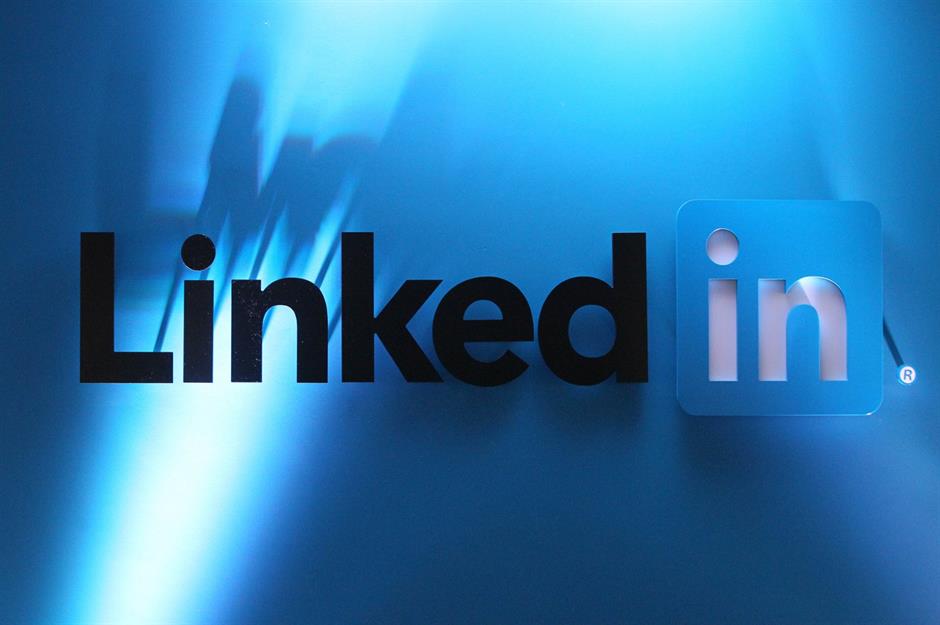
Niall Carson/PA Archive/PA Images
The most recent North Korean Bitcoin scandal came to light this August. The cyberattacks involved sending seemingly innocent messages via professional networking site LinkedIn. Finnish cyber security firm F-Secure unveiled the hack, where North Korean hackers known as the Lazarus Group had created fake job profiles targeted at employees working for aerospace and military companies they were looking to infiltrate in more than 12 countries, including the US, UK, China, Russia, and South Korea. Personal information and private data was then easily accessible to the criminals, which could in turn be used to steal Bitcoin and other cryptocurrencies. Despite having been found out, security companies warn that this wasn't the first, and won't be the last, malicious cyberattack to come out of North Korea, especially as coronavirus is having an impact on other revenue streams.
Hacking is allegedly big business in North Korea
.jpg)
And it's not just cryptocurrencies that are being hacked. According to Kim Kuk-song, former leader Kim Jong-il began training cybercriminals in the 1980s "to prepare for cyberwarfare." Although most North Koreans are denied internet access and even mobile phones, previous defectors have claimed that there are around 6,000 professional hackers in Pyongyang – and it's believed they were behind the WannaCry ransomeware attack that targeted organisations including the UK's National Health Service (NHS) in 2017. Kim Kuk-song claimed that the hackers work in the 414 Laison Office, known within the government as 'Kim Jong-il's Information Centre'. A confidential UN report in 2019 revealed these hackers had stolen $2 billion (£1.6bn) to fund the country's nuclear weapons programme.
Luxury goods are for sale
.jpg)
Creative Lab/Shutterstock
While many people survive on the bare necessities, supreme leader Kim Jong-Un is renowned for living a life of luxury. The same goes for his elite inner circle, who are some of the few 'comrades', as the commmunist country's citizens are known, who can afford to shop at the two well-stocked luxury department stores in North Korea's capital Pyongyang. The cash-only stores serving the ruling upper class reportedly sell designer items such as Montblanc watches worth over $4,000 (£3.2k). These stores are also thought to provide a revenue stream for the regime.
Now read about the shocking difference between Kim Jong-un and his people
Slave labour abroad
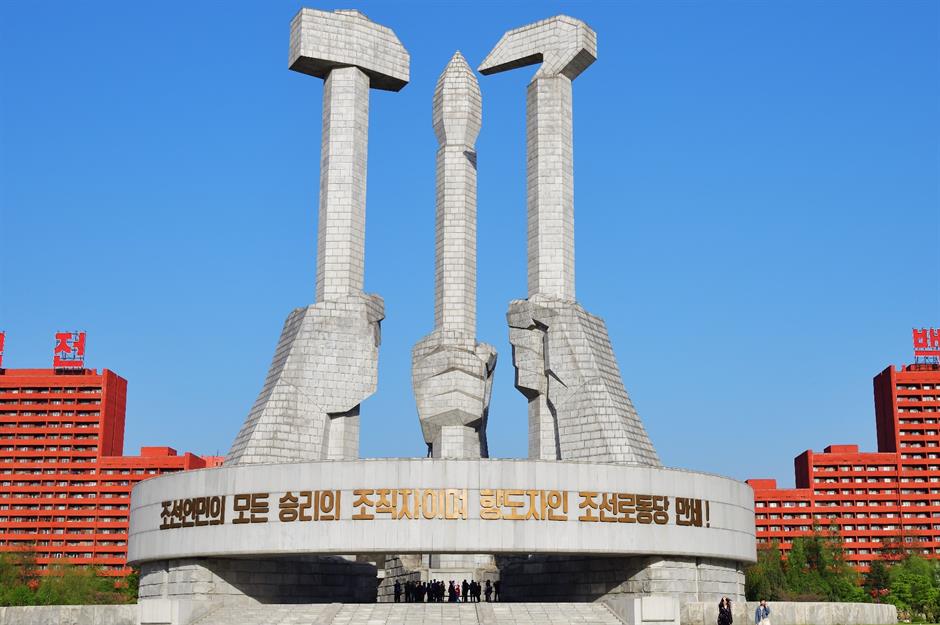
Oleg Znamenskiy/Shutterstock
And it isn't just in their home country that North Korean workers are being underpaid and mistreated to benefit the rich elite. There have been rumours of North Korea profiting from slave labour for years and, in 2015, a United Nations press conference held by rapporteur Marzuki Darusman alleged just how bad the situation was. Between 50,000 and 100,000 North Korean citizens have been sent abroad – predominantly to China and Russia, but also to countries across Asia, Europe, and Africa – to work in various labour industries, including mining, construction, and textiles. Working conditions are harsh and salaries are virtually non-existent, with constant surveillance ensuring that labourers are worked to the bone. Money is exchanged for the excruciating work, but it goes straight to the North Korean government. As Kim Kuk-song says, "All the money in North Korea belongs to the leader."
Bringing in the tourists
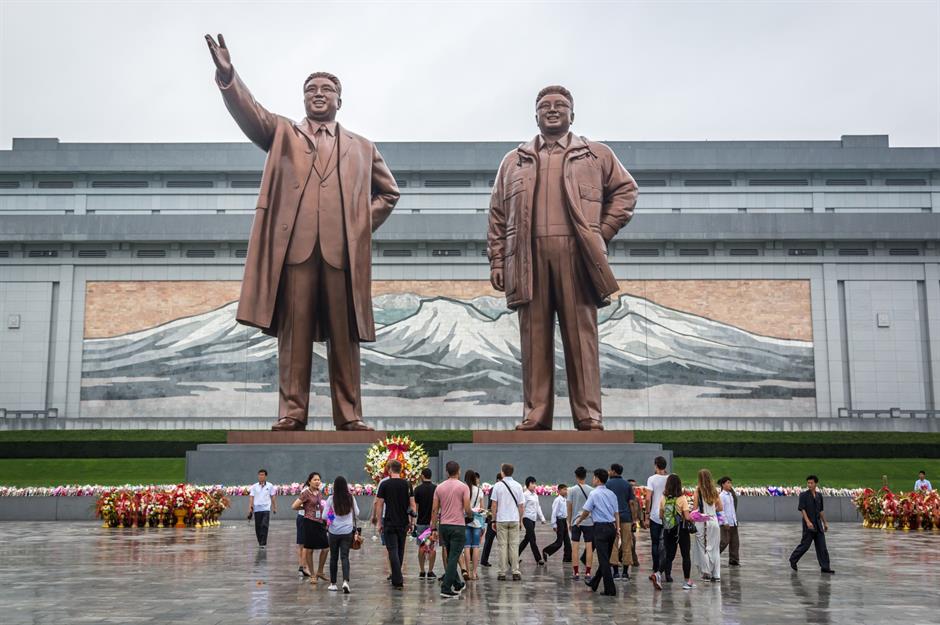
Given its secretive and scandalous reputation, it's unsurprising that people are keen to sneak a peak into North Korean life. Those wanting a close-up look at the day-to-day lives of North Korean citizens will be disappointed however, as the few tourists who were allowed into the country were closely watched at all times and are only permitted to visit places that have the government seal of approval. It's uncertain exactly how much money North Korea was making from foreign visitors pre-COVID, but it's estimated that they could bring in as much as $175 million (£139m) a year.
Now read about the legal and illegal jobs North Koreans do to survive
Be the first to comment
Do you want to comment on this article? You need to be signed in for this feature
Where Does North Korea Get Its Money
Source: https://www.lovemoney.com/gallerylist/93874/how-north-korea-makes-money-revealed
Posted by: jacksonreate1987.blogspot.com

0 Response to "Where Does North Korea Get Its Money"
Post a Comment